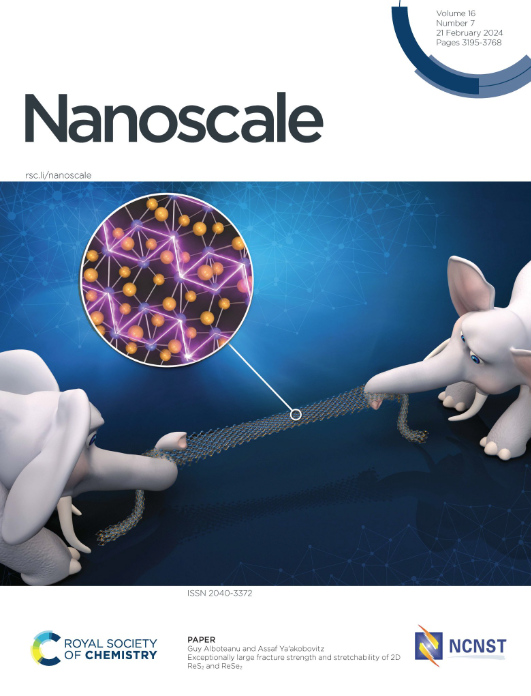纳米酶驱动的免疫微环境重塑:从催化治疗到精确免疫调节
IF 5.1
3区 材料科学
Q1 CHEMISTRY, MULTIDISCIPLINARY
引用次数: 0
摘要
纳米酶已成为解决以免疫失调为特征的疾病(包括癌症、慢性炎症和持续性感染)的关键挑战的变革性工具。这些酶模拟纳米材料通过其可调节的催化活性和精确的时空控制,在重塑病理免疫微环境方面具有独特的优势。本文系统地回顾了基于纳米酶的免疫调节的最新突破,强调了它们在癌症治疗中诱导免疫原性细胞死亡和激活先天免疫途径的能力,同时在炎症性疾病中清除反应性物质和重编程巨噬细胞极化的能力,以及在解决感染相关免疫抑制时破坏微生物生物膜的能力。我们批判性地分析了单原子催化剂、生物激发递送系统和新的催化免疫机制方面的关键创新,这些机制能够实现靶向免疫调节。通过阐明基本的结构-活性关系和转化挑战,本综述为开发具有更高特异性和临床潜力的下一代纳米酶免疫疗法提供了有价值的见解。这些进展使纳米酶成为广泛的免疫相关疾病精确免疫治疗的强大平台。本文章由计算机程序翻译,如有差异,请以英文原文为准。
Nanozyme-Driven Remodeling of the Immune Microenvironment: From Catalytic Therapy to Precise Immune Regulation
Nanozymes have emerged as transformative tools for addressing critical challenges in diseases characterized by immune dysregulation, including cancer, chronic inflammation, and persistent infections. These enzyme-mimicking nanomaterials offer unique advantages in remodeling pathological immune microenvironments through their tunable catalytic activities and precise spatiotemporal control. This review systematically examines recent breakthroughs in nanozyme-based immunomodulation, highlighting their ability to induce immunogenic cell death and activate innate immune pathways in cancer therapy, simultaneously scavenge reactive species and reprogram macrophage polarization in inflammatory diseases, and disrupt microbial biofilms while resolving infection-associated immunosuppression. We critically analyze key innovations in single-atom catalysts, bioinspired delivery systems, and novel catalytic-immune mechanisms that enable targeted immune regulation. By elucidating fundamental structure-activity relationships and translational challenges, this review provides valuable insights for developing next-generation nanozyme immunotherapies with enhanced specificity and clinical potential. These advances establish nanozymes as powerful platforms for precision immunotherapy across a broad spectrum of immune-related disorders.
求助全文
通过发布文献求助,成功后即可免费获取论文全文。
去求助
来源期刊

Nanoscale
CHEMISTRY, MULTIDISCIPLINARY-NANOSCIENCE & NANOTECHNOLOGY
CiteScore
12.10
自引率
3.00%
发文量
1628
审稿时长
1.6 months
期刊介绍:
Nanoscale is a high-impact international journal, publishing high-quality research across nanoscience and nanotechnology. Nanoscale publishes a full mix of research articles on experimental and theoretical work, including reviews, communications, and full papers.Highly interdisciplinary, this journal appeals to scientists, researchers and professionals interested in nanoscience and nanotechnology, quantum materials and quantum technology, including the areas of physics, chemistry, biology, medicine, materials, energy/environment, information technology, detection science, healthcare and drug discovery, and electronics.
 求助内容:
求助内容: 应助结果提醒方式:
应助结果提醒方式:


